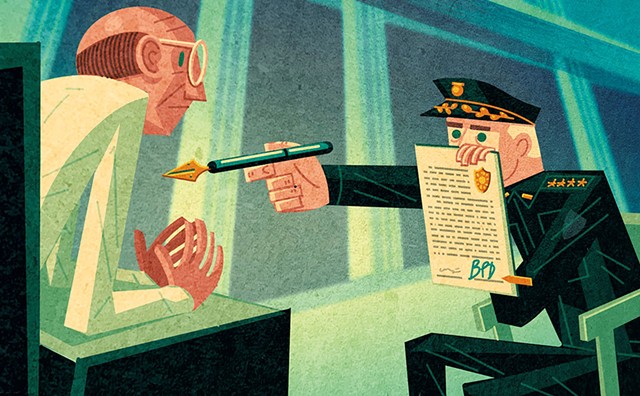
- Rob Donnelly
The 2019 mayor's race in Bridgewater Township, N.J., was well under way when the local police union approached Matthew Moench with an idea.
A 12-year council member, Moench was trying to unseat the incumbent mayor of Bridgewater, a town of 45,000 located about 30 miles west of Newark. The town's growing population required more police service, and the chief had proposed hiring a dozen more cops to fill coverage gaps. Not having enough police officers, he told local media at the time, would be "catastrophic."
But the union, which represents members of the 74-officer force, said switching from 10.5-hour shifts to 12-hour shifts could boost coverage without hiring new cops. Moench was sold, and after he took office in January 2020, such a schedule was written into a new police contract.
"For us, this was a no-brainer to do," Moench told Seven Days last week. "It's worked out really well."
A consultant charged with reviewing police operations in Burlington, a similar-size city with a similar-size police force, has recommended the same scheduling switch. But making that change — and several others — would require altering the city's contract with the Burlington Police Officers' Association.
That union contract, according to a draft report by Virginia-based nonprofit CNA, hamstrings the department in several ways. In addition to mandating an inefficient patrol schedule, the contract overstaffs the Burlington International Airport and requires too many detectives for an agency of its size, the report found. The agreement allows disciplinary records to be expunged from officers' files far too soon, the consultants also concluded.
"A subset of the community, the City, and the BPD is in conflict, and unresolved issues of accountability, transparency, and political tension must be addressed," the report says. The contract, CNA wrote, "should be renegotiated to increase efficiencies to the BPD, while allowing flexibility to meet the best interests of the department."
The city has put a lot of stock in the CNA report, positioning it as a guiding document in the city's ongoing path to public safety reform. But enacting any change will largely depend on officers' willingness to accept it.
Rank-and-file cops haven't publicly weighed in on the report. Neither has Mayor Miro Weinberger, who, through his spokesperson, declined to discuss the findings until the final report is released, likely later this week.
Then-city attorney Eileen Blackwood was at the negotiating table in 2018 when the union settled its current contract, which expires in June 2022. Last summer, as protesters occupied Battery Park to demand accountability for police, Weinberger directed Blackwood to review the union contract for possible changes. Blackwood finished her review last fall, though the city wouldn't release her findings, citing attorney-client privilege.
Ahead of the March 2021 mayoral election, the union endorsed Weinberger, who has pushed for hiring more cops, rather than his opponent, City Council President Max Tracy, a Progressive who voted last year to slash the department roster by 30 percent through attrition.
While Weinberger won the race, the council has stood by its decision to cap the department at 74 officers. The draft CNA report suggests a force of a similar size, with 76 to 83 sworn cops.
Tracy didn't want to comment on the report until it became public but said that after more than a year of reckoning with racial justice and policing in Burlington, he was already convinced the contract needs an update.
"There are a number of areas where we're going to need to make significant changes in order to address the racial disparities that we see in our current system while also making our public safety system more effective," he said. "We're going to need significant changes around civilian oversight. We knew that before the report, we know that now, and we'll continue to know that until we make meaningful change."
If either the city or police union wants to discuss new contract terms, they must notify the other by January 2022. It's unclear whether the city will bring any of CNA's recommendations to the bargaining table.
The city council commissioned the independent report in January after Battery Park protesters demanded the firing of three officers accused of using excessive force. One of those officers, sergeant Jason Bellavance, took a $300,000 buyout and resigned. The city didn't pursue separation agreements with the other officers — Cory Campbell and Joseph Corrow — because they'd already been disciplined and their union contract protected them from further punishment, officials said at the time. Corrow is now president of the police union, which did not respond to a request for comment on the report.
Acting Police Chief Jon Murad, who also did not respond to an interview request, has recognized some limitations imposed by the current contract. After Seven Days questioned in June whether the department was efficiently deploying its officers, Murad put some of the blame on the contract, saying it allows officers to indicate their preferred shift and patrol area. Even he, Murad said, couldn't reassign them at will.
"Officers are on a shift that they choose, and that's how the shift structure works," Murad said at the time.
Indeed, the contract has little wiggle room. It says that patrol officers will work 10-hour shifts and that the force will be divided into "tour assignments" for four months at a time. Officers get weekends off every other month.
CNA consultants, however, found that six 12-hour shifts would be more effective. Using the so-called "Pitman schedule," officers would be split into day and night shifts — such as 6 a.m. to 6 p.m. and from 6 p.m. to 6 a.m. — with one overlapping shift from noon to midnight, every day. Officers wouldn't work more than three consecutive 12-hour days, and they'd get every other weekend off.
Moench, the Bridgewater mayor, said officers there enjoy working fewer, albeit longer, days per week. But some police experts warn against the model.
Karen Amendola is the chief behavioral scientist at the National Police Foundation, a nonprofit that aims to improve policing with science-backed research. She authored a 2011 study, "The Shift Length Experiment," that compared eight-, 10- and 12-hour shifts and found that longer shifts are linked to a higher risk of accidents and injuries. Depending on where they live, officers who work CNA's recommended shift of 6 a.m. to 6 p.m. have to wake up early in the morning when their body is pressuring them to sleep — a time known as the "circadian dip," Amendola said.
After work, the officers have just 12 hours to drive home, eat dinner, spend time with family and sleep — ideally for eight hours — before the next shift. By the third 12-hour day, the officers will begin accumulating "sleep debt," which leads to fatigue, she said.
"You can't look at it as a straightforward calculation of, What seems to fit best, and where's there the best coverage?" Amendola said. "If you look at it as just the numbers, you're missing the nuances that are important."
Texas attorney Ron DeLord, a national police union expert and former cop, agreed.
"Once you start driving vehicles, that's a concern," he said, recalling how he once fell asleep at the wheel at 6 a.m. after a 10-hour shift and hit a parked car. "That last hour or two before daylight wakes you up created problems."
CNA's report, however, says that changing to a 12-hour schedule and modifying officer assignments would free up officers and "provide more balanced operations."
And a reduced head count — as prescribed by the city council — also demands smarter staffing assignments, CNA wrote. The union contract's requirement that the department have no less than 10 detectives "hamstrings the flexibility of the City in reimagining its public safety response." The consultants also recommended shrinking the airport patrol from eight officers to four, the contractual minimum.
The union contract gives Burlington cops exclusive rights to police the airport, a stipulation CNA called "an overreach" that should be renegotiated "as soon as practical." The work should be the responsibility of the Federal Aviation Administration or the Transportation Security Administration, CNA says.
City officials, however, say those agencies require the very staffing levels that CNA identified as problematic — though the documents they provided did not prove it.
Interim aviation director Nic Longo gave Seven Days two FAA directives about police presence at airports, but neither specifies the number of officers required for patrol. One regulation says airports must have "law enforcement personnel in the number and manner adequate to support its security program."
Longo stopped responding to emails after Seven Days requested a copy of the airport's security program. A formal public records request for all documents that govern airport staffing is pending.
At a meeting on Monday night, Murad told city councilors that "federal law" prescribes staffing at the airport.
"It's determined in part by the number of gates, including the baggage gate, and that dictates the fact that we have a supervisor and seven officers at the airport in order to have 24-hour staffing at all gates there," he said.
The last flights usually arrive by midnight, and departures begin around 6 a.m.
Another section of the CNA report that is sure to be scrutinized, given last summer's protests, addresses police discipline. The union contract prohibits the city from publicly sharing "any information" gained from internal investigations. Disciplinary records such as reprimands or performance plans will only be retained for a year, the contract says, while records relating to suspensions are kept on file for a maximum of three years.
CNA's analysis says those time frames are "inconsistent with industry standards" and such records should be kept for "far longer periods" to help the department track officers' behavior. The report says the city should consider being more transparent with complaints "while maintaining the confidentiality of the investigation.
"Many cities allow for the release of overall complaint information and the disciplinary findings of officers, regardless of the stipulations in the union contract," the report says.
DeLord, the Texas union expert, gained fame in law enforcement circles when he published his book, Police Association Power, Politics, and Confrontation: A Guide for the Successful Police Labor Leader, in 1997. According to a recent New York Times profile of DeLord, the book helped police unions earn better pay and benefits for their members — and protected them from discipline.
But even DeLord recognizes that times have changed. After George Floyd's murder by Minneapolis police, the public is demanding transparency and accountability, DeLord said, noting that his clients have realized, We're not going to have it the way it was. He suggested that all police unions, Burlington's included, consider the same.
"The union has to embrace the concept of reform," DeLord said. "You can go too far in any direction, but starting out [thinking] that any change is bad is doomed to failure."

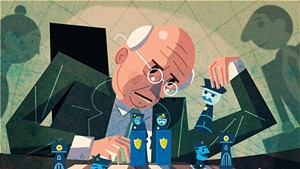
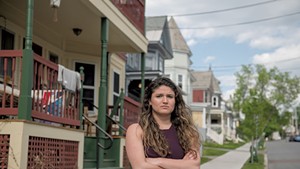
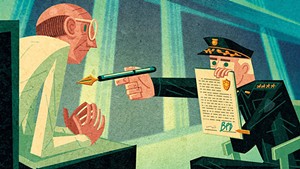






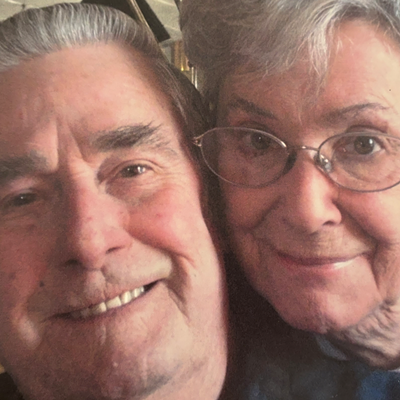


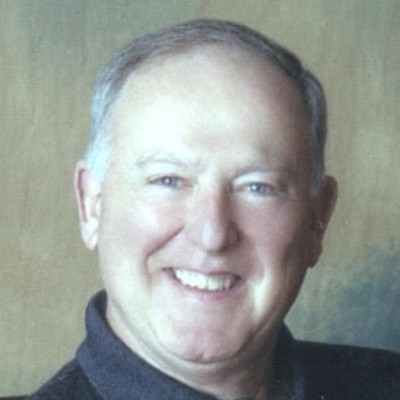
Comments
Comments are closed.
From 2014-2020, Seven Days allowed readers to comment on all stories posted on our website. While we've appreciated the suggestions and insights, right now Seven Days is prioritizing our core mission — producing high-quality, responsible local journalism — over moderating online debates between readers.
To criticize, correct or praise our reporting, please send us a letter to the editor or send us a tip. We’ll check it out and report the results.
Online comments may return when we have better tech tools for managing them. Thanks for reading.